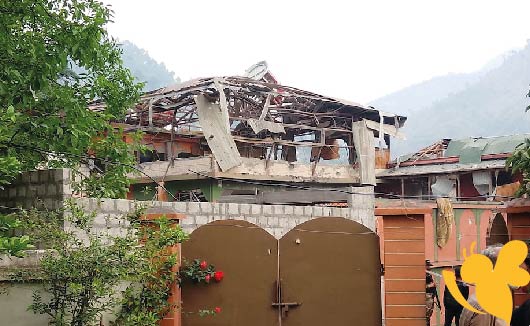The recent military engagement between India and Pakistan, particularly India's "Operation Sindoor," has reignited tensions in a region long fraught with conflict. Following a terrorist attack that resulted in the deaths of 26 civilians in Indian-controlled Kashmir, India launched airstrikes targeting alleged terrorist infrastructure within Pakistan . This operation marks one of the most significant military actions by India against Pakistan in over half a century, prompting Islamabad to label it an "act of war" . The immediate aftermath saw claims from Pakistan of downing Indian jets and retaliatory artillery fire, further escalating hostilities between the two nuclear-armed nations.
The strikes came amid soaring tensions between the nuclear-armed neighbors over last month's militant attack on tourists in the Indian-administered portion of Kashmir. India has blamed Pakistan for backing the militant attack, which Islamabad has denied.
A spokesperson for the Pakistani Ministry of Foreign Affairs said in a statement that the strikes hit Muridke and Bahawalpur, and across the Line of Control in Kotli and Muzaffarabad, Azad Jammu and Kashmir. One of them struck a mosque in the city of Bahawalpur in Punjab, where a child was killed, and a woman and man were injured, one official told The Associated Press.
"India's act of aggression has resulted in martyrdom of civilians, including women and children," the spokesperson said. "This act of aggression has also caused grave threat to commercial air traffic." Zohaib Ahmed, a doctor at a hospital, said the death toll from the Indian missile strike on the Subhan Mosque in Bahawalpur has jumped to 13, bringing the overall death toll from the Indian strikes across the country to 19.
Delhi emphasised its actions on Wednesday targeted terrorist infrastructure and said thee were chosen "based on credible intelligence inputs".
But locals in the targeted areas in Pakistan-administered Kashmir say that their mosques and residential complexes were among the sites hit.
Mr Waheed cannot fathom why his local mosque was hit, which injured "dozens of men and women" in his neighbourhood in Muzaffarabad.
International responses have emphasized the need for restraint and dialogue to prevent further escalation. Prominent world leaders, including UN Secretary-General António Guterres and U.S. President Donald Trump, have called for de-escalation amid fears that this conflict could spiral into a larger regional crisis . However, experts remain divided on whether this incident will lead to sustained military engagement or if it will follow historical patterns where both nations engage but ultimately seek diplomatic resolutions (Custom). Ultimately, the situation underscores the persistent volatility surrounding Kashmir and its implications for regional stability.
Read more
Webb Telescope Sheds Light on Enigmatic Exoplanets Royals win on White Sox blunder 4-3Sarah H
Also on site :
- Real Madrid vs. Pachuca: Club World Cup match preview
- LSU's Kade Anderson throws a shutout in the 2025 College World Series opener, strengthening his bid for the No. 1 pick.
- Carlos Alcaraz makes Wimbledon promise to Emma Raducanu as she watches five-time Grand Slam champion at Queen’s

